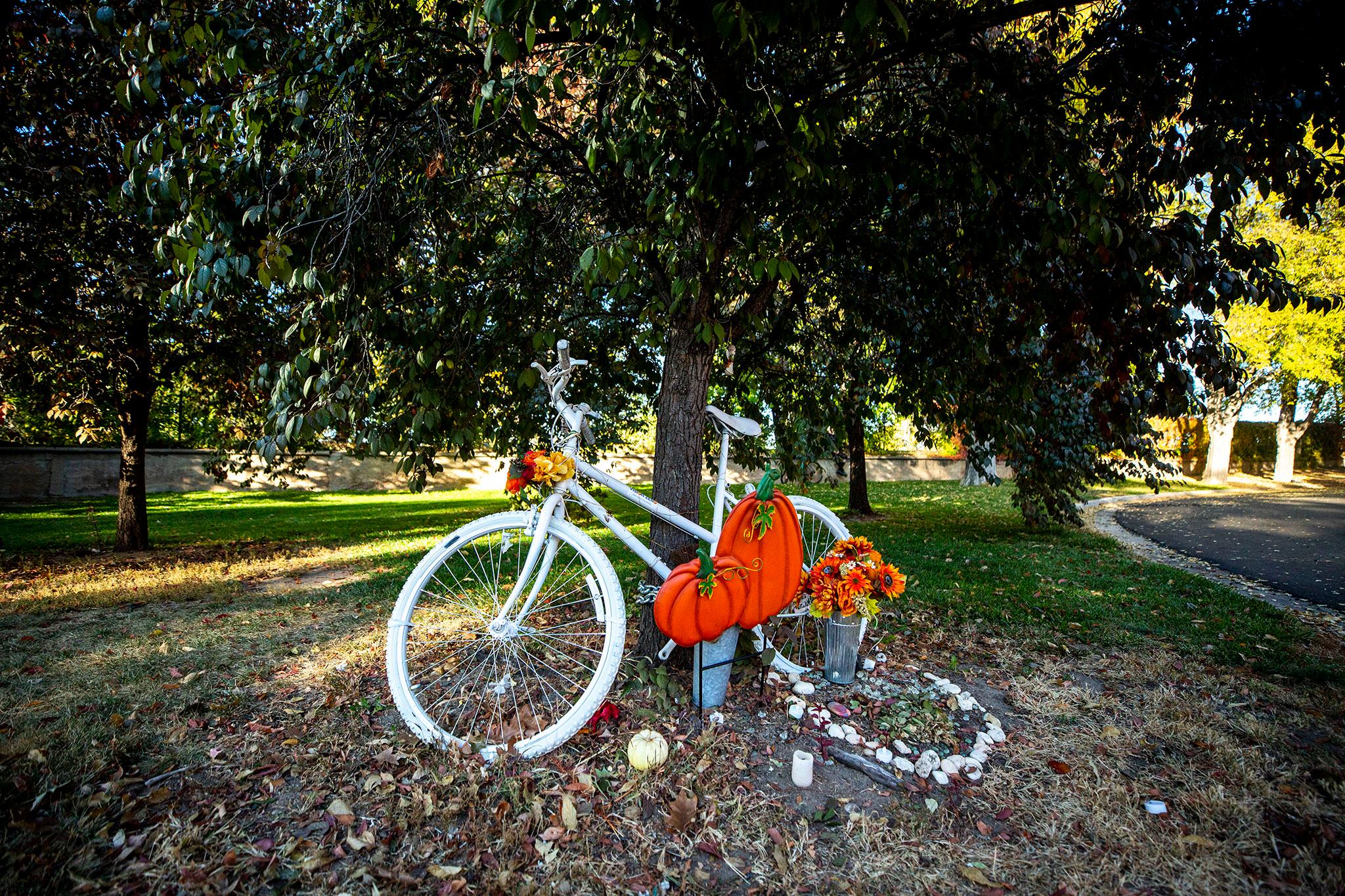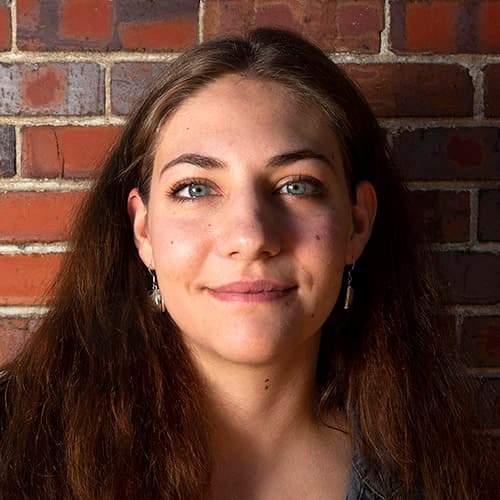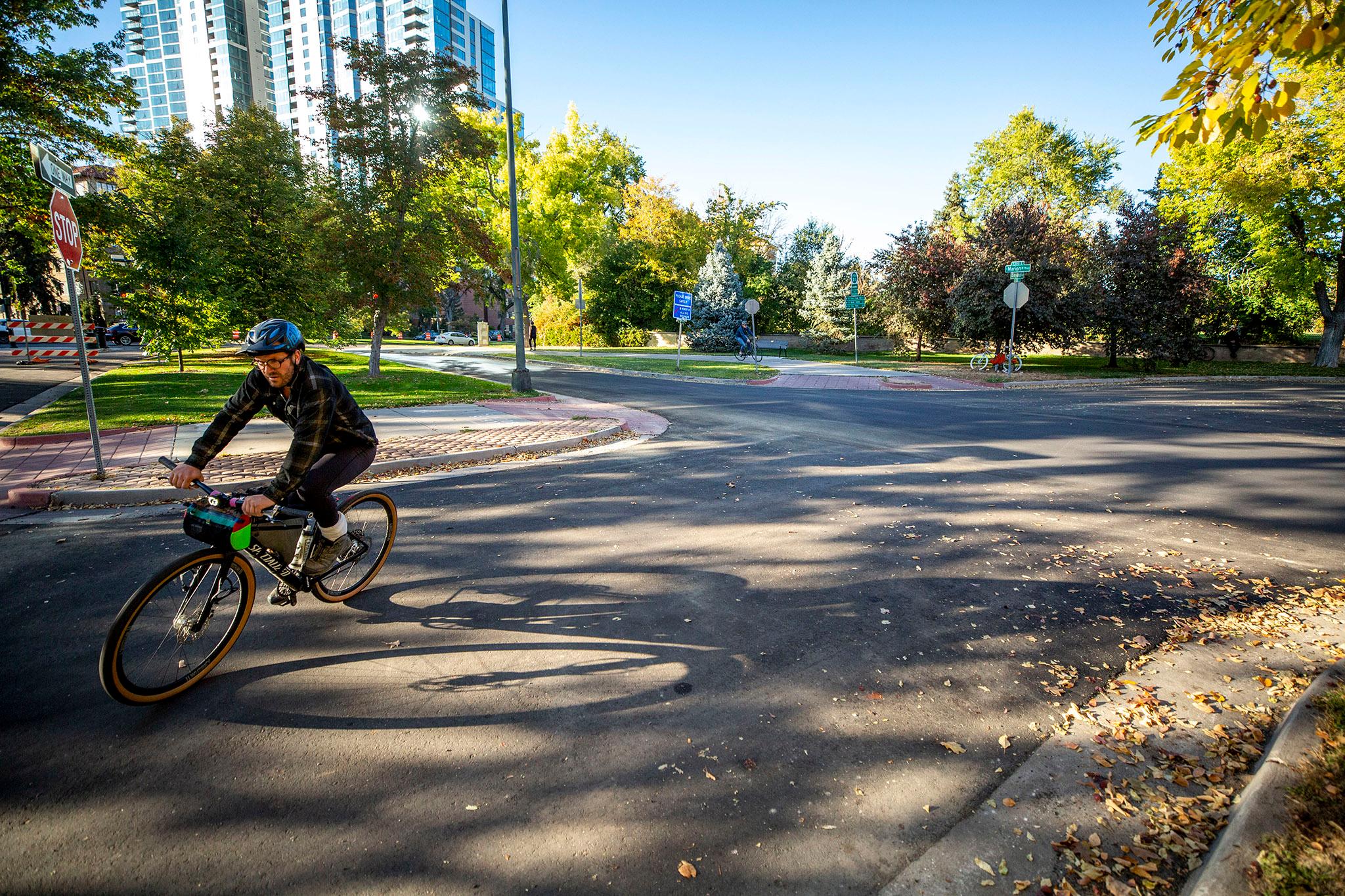An expanded protected bicycle lane is being constructed at Marion Parkway between Virginia Avenue and Bayaud Avenue, the parkway where a 37-year-old mother was killed on a bicycle two years ago. The city plans to remove all the old lane lines and infrastructure and create a new, protected lane along the street's tree-lined median. Repaving sections of the road has now begun.
The bicycle lane along the median will have a small barrier with pylons to separate it from the parked cars and loading zones. Previously, the bike lane only ran along the right side of the road, between moving traffic and roadside parking.
It was what is known as a "high-stress lane" because there's no barrier between cyclists and moving cars. Lanes like the newly constructed one, which will be separated from traffic by a barrier, is a "protected bike lane." The new lane is funded through the 2017 Elevate Denver Bond package, which allocated a total of $937 million for city infrastructure improvements.

The historic Marion Parkway connects the Denver Country Club with Washington Park, making it a popular thoroughfare for many bicyclists. It was originally built in 1913 and was listed on the National Register of Historic Places in 1986. Its historic designation has been a key talking point for those opposed to the changes a protected bike lane would bring. They previously argued the center lane and its pylons would damage the beauty of the parkway.
Bicyclist Alexis Bounds was killed in 2019 when a truck driver ran into her while taking a right turn at Bayaud and Marion Street in the Country Club neighborhood. Her death, along with the death of another bicyclist named Scott Hendrickson, spawned days of protests by transportation advocates. Ali Clerkin, whose left arm, elbow and hand were broken in a car collision along the same road years before, also said protected bike lanes were a necessity.
Denver recently surpassed last year's traffic deaths, and the city is on track for another all-time high. Sixty-six people have died in traffic accidents on Denver's roadways as of Oct. 22, compared to all of 2020's 57. The pandemic year was certainly an outlier, but now that things have normalized, traffic deaths are inching back towards 2019's record high of 71 fatalities, a grim number that is now once again within reach. Vision Zero, Denver's traffic initiative to create safer roads, aims to eliminate all traffic-related deaths in the city by 2030, but so far is not on pace to meet the goal.
The city is also building out protected bike lanes along three different corridors: along 13th Avenue from Mariposa Street to the Platte River Trail, at 18th Street from Broadway to Wynkoop Street, and one along 19th Street, from Wynkoop Street to Stout Street. Another protected lane is going in at 23rd Avenue/Water Street from Federal Boulevard to Speer Boulevard. Other bike lane improvements are slated for Zuni and Garfield streets as well as Lipan Boulevard.
Correction: This story was updated to reflect that Ali Clerkin was injured a few years before Alexis Bounds.












